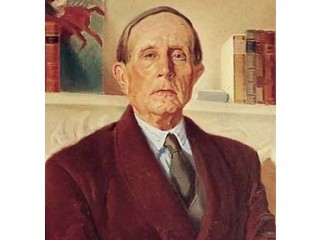
Jose Martinez Ruiz biography
Date of birth : 1873-06-08
Date of death : 1967-03-02
Birthplace : Monivar, Alicante, Spain
Nationality : Spanish
Category : Famous Figures
Last modified : 2011-08-11
Credited as : Writer, novelist,
The Spanish writer José Martínez Ruíz, who wrote under the name Azorín, was a spokesman for the Generation of 1898. He is famous for his impressionistic sketches and essays which evoke the essence of traditional and modern Spain.
José Martínez Ruíz was born on June 8, 1873, in Monovar in Alicante Province. He spent his childhood in Yecla, later evoked in the autobiographical novel Las confesiones de un pequeno filosofo. He studied law in Valencia, Granada, and Salamanca but preferred literature and newspaper work. In 1896 he went to Madrid and wrote for several republican, anticlerical newspapers. He soon became known as an outspoken republican with anarchist sympathies, symbolically expressed by his persistent use of a red umbrella.
In 1900 Ruíz published his first important work, El alma castellana 1600-1800, in which he revealed the essence of Spain, symbolized in Castilian towns and landscapes. Three novels followed: La voluntad (1902), Antonio Azorín (1903), and Las confesiones de un pequeno filosofo (1904). Their protagonist is Antonio Azorín, whose name Ruíz adopted in a kind of personal identification with his fictional character. The novels, which lack plot or any significant action, portray in three separate stages the anxieties and reminiscences of a hypersensitive intellectual surrounded by the decadence of modern Spain.
But Ruíz's lyrical, fragmentary style was much more suited to short sketches than to the longer novel form. Books such as Los pueblos (1905), La ruta de don Quijote (1905), and Castilla (1912) manifest his art in its purest form. Preoccupied with the past, Ruíz evoked poetically the beauty and inner life of familiar scenes and things, ultimately revealing the recurrence of the past in present life. The paradox of time visualized as eternal repetition became one of his chief concerns.
Ruíz also wrote literary criticism. He offers in Lecturas espanolas (1912), Clí¡sicos y modernos (1913), and Almargen de los clasicos (1915) original views of the classics and many forgotten authors. He is the spokesman for the Generation of 1898, having defined that group of writers in a famous essay.
Gradually Ruíz became politically more conservative. He was elected deputy to the Cortes (1907, 1914) and served as undersecretary of education (1917, 1919). In 1924 he was admitted to the Spanish Academy but renounced membership when Gabriel Miro Ferrer was refused entrance. During the 1920s Ruíz wrote three more novels and a few unsuccessful plays, among them Old Spain (1926) and Brandy, mucho Brandy (1927). During the Civil War he lived in Paris, returning to Madrid in 1940. His subsequent works are inferior to his earlier works. He died on March 2, 1967, in Madrid.
















